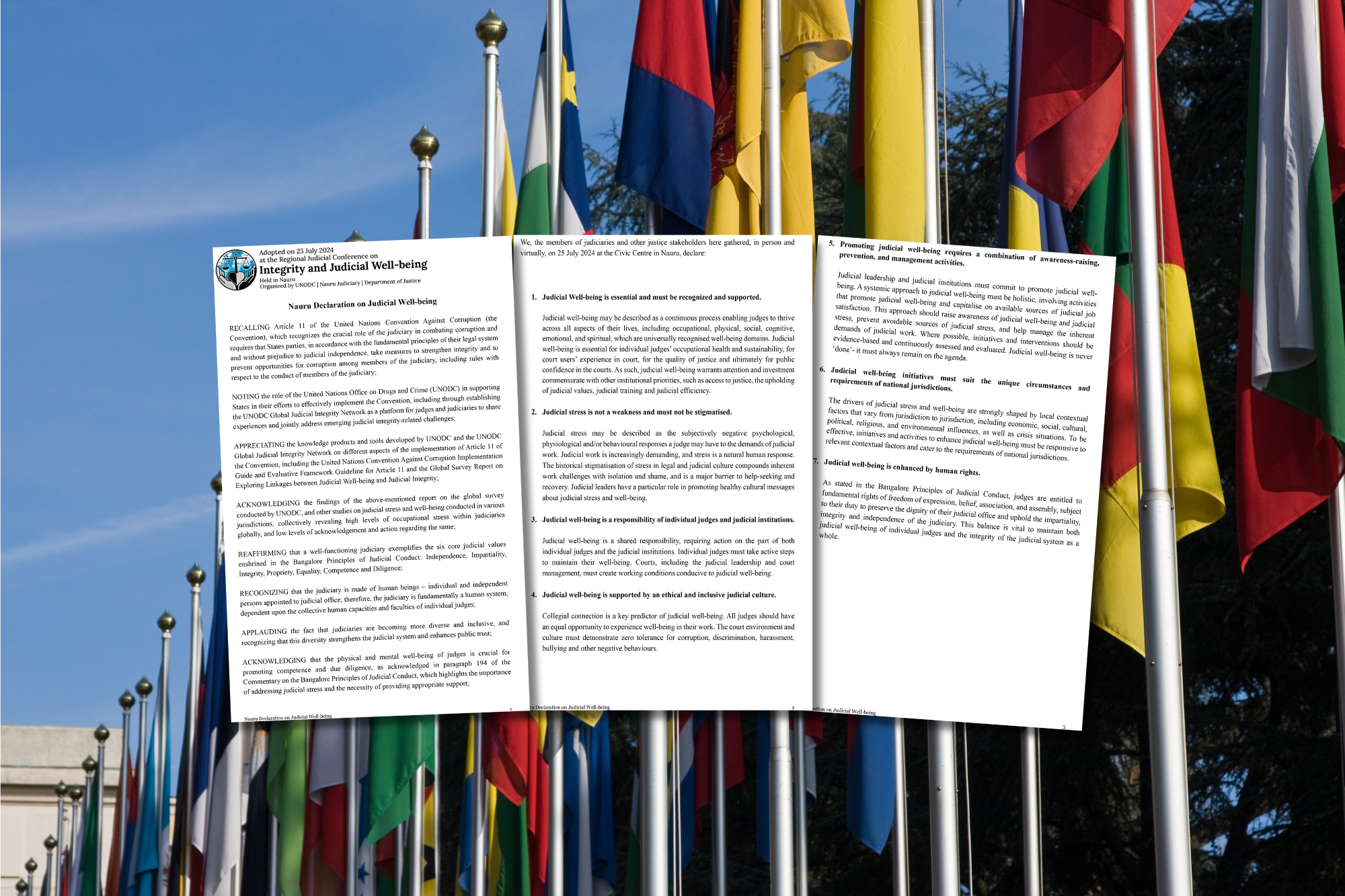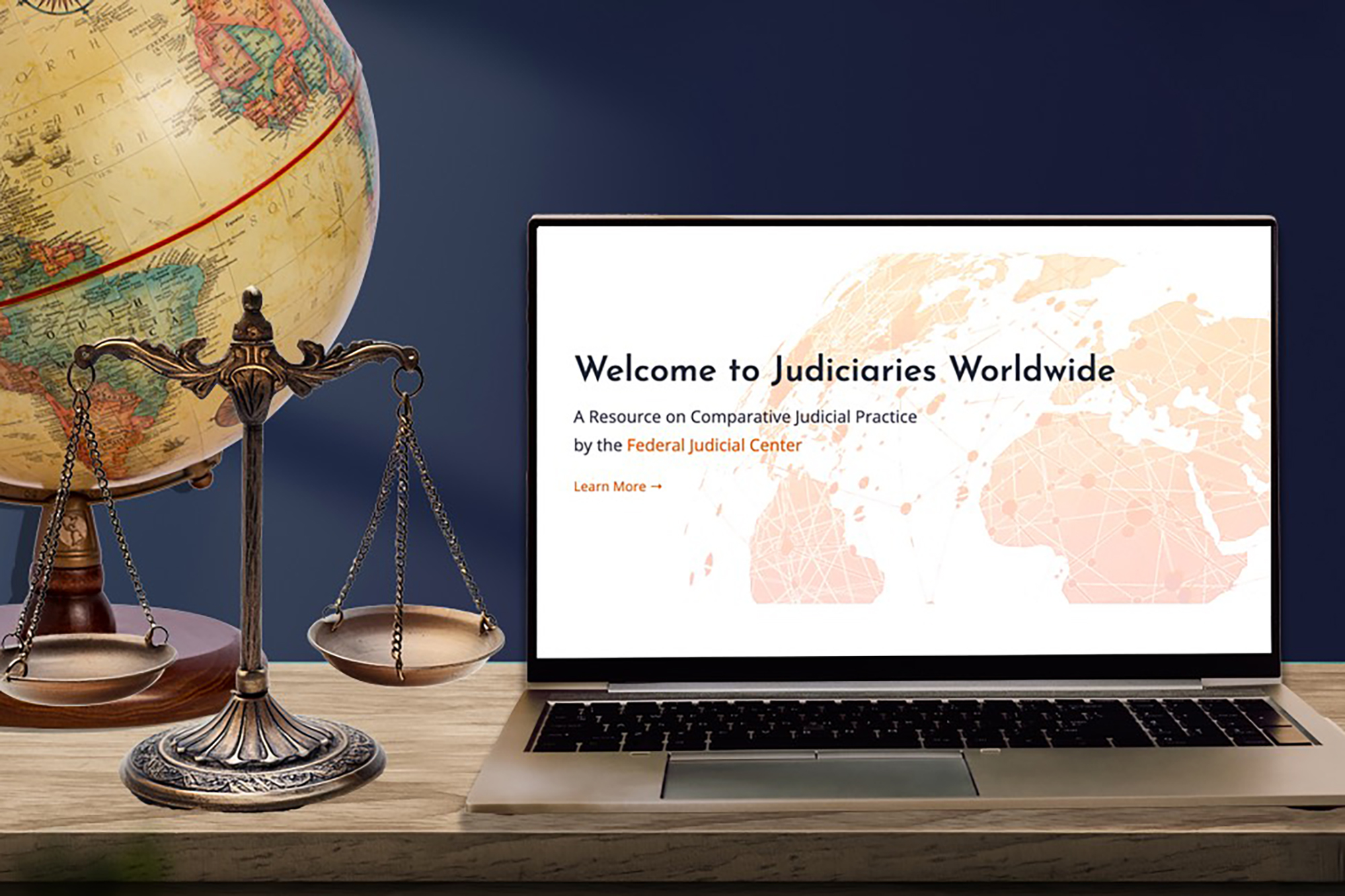Law & Culture
 From the Publisher
From the Publisher
Problem-Solving Courts: Innovative Solutions to Improve Outcomes
Vol. 108 No. 3 (2025) | Problem-Solving CourtsWhen people think about the justice system in the United States, they probably think about scenes from shows like Law and Order — with imposing courthouses, intimidating courtrooms, stern and impatient judges, […]
 Feature
Feature
The Nauru Declaration: A Milestone for Judicial Wellness
by Rangajeeva Wimalasena, Lynne C. Leitch, Carly Schrever and Jeremy Fogel
Judicature International (2025) | An online-only publicationWhether shaped by media portrayals or personal experiences, the prevailing archetype of a judge rarely accounts for the pressures, challenges, and stresses that are inherent in the job. Judges have […]
 Feature
Feature
Judiciaries Worldwide: A Resource on Comparative Judicial Practice
Judicature International (2025) | An online-only publicationThe Federal Judicial Center, the education and research agency for the United States federal courts, has created Judiciaries Worldwide, an online resource that explores the many ways judicial systems can be structured.
 Feature
Feature
In Conversation with Petr Angyalossy, Chief Justice of the Czech Republic
by Petr Angyalossy and David Collins
Judicature International (2024) | An online-only publicationJUDr. Petr Angyalossy, Ph.D., President of the Supreme Court of the Czech Republic, offers his perspective on the current state of the judiciary, its core strengths, and the challenges it faces.
 A Finer Point
A Finer Point
Junior-Attorney Training and Use of the Judicial Power
Vol. 108 No. 2 (2024) | Judges Under Siege?In 2023, the American Bar Association passed a resolution urging judges to allow a second lawyer to present at oral argument if he or she has practiced for ten or […]
 Feature
Feature
“But Is It Reasoned?”
Vol. 108 No. 2 (2024) | Judges Under Siege?When it comes to finding reasons in arbitration awards, some courts are being, well, unreasonable.
 Feature
Feature
Judges Under Siege: Threats, Disinformation, and the Decline of Public Trust in the Judiciary
by David F. Levi, Thomas B. Griffith, Paul W. Grimm, Nathan Hecht, Bridget Mary McCormack and Suzanne Spaulding
Vol. 108 No. 2 (2024) | Judges Under Siege?Judicial and legal leaders to discuss the sources of this growing crisis
 From the Editorial Board Chair
From the Editorial Board Chair
“We must act like the leaders we are”
Vol. 108 No. 2 (2024) | Judges Under Siege?The Bolch Judicial Institute (which publishes Judicature) recently presented “Defending the Judiciary,” a conference that brought lawyers and judges together to discuss ways to counter the increasingly common attacks targeting the […]


